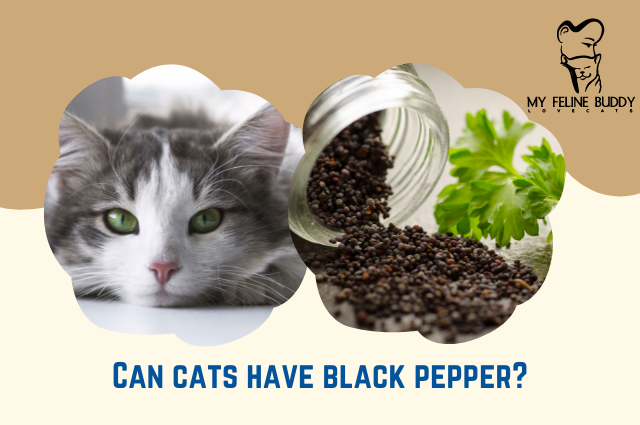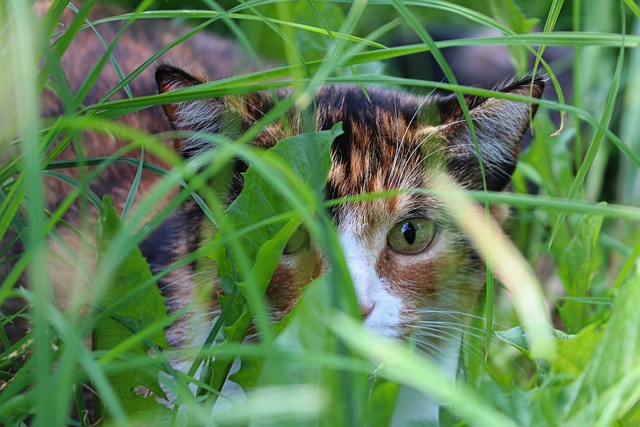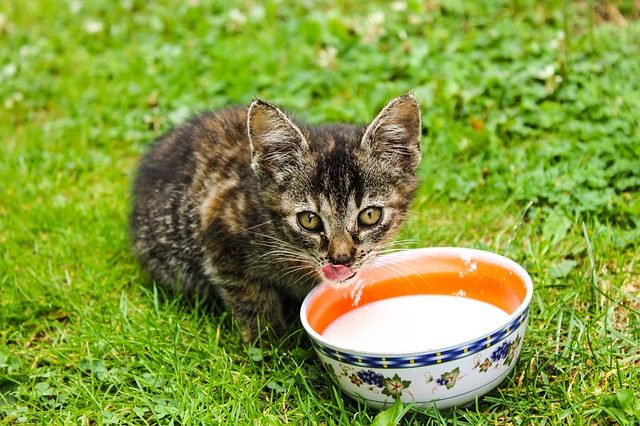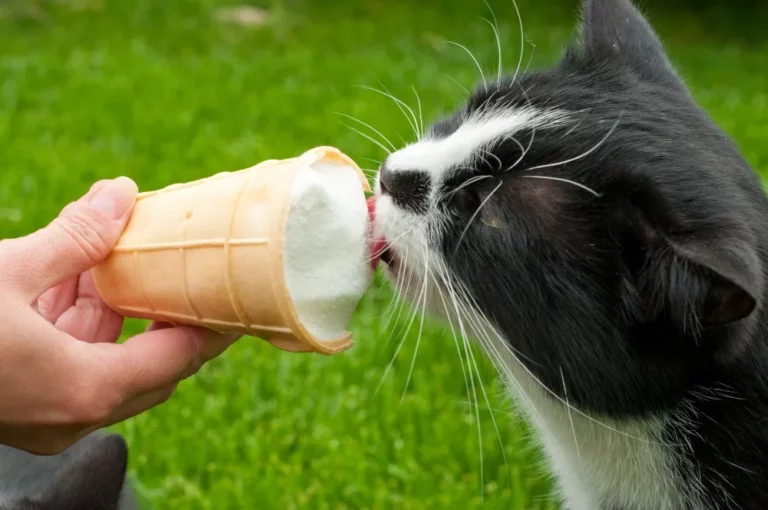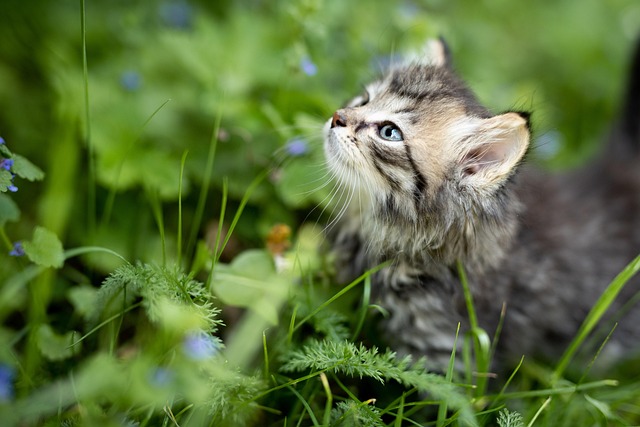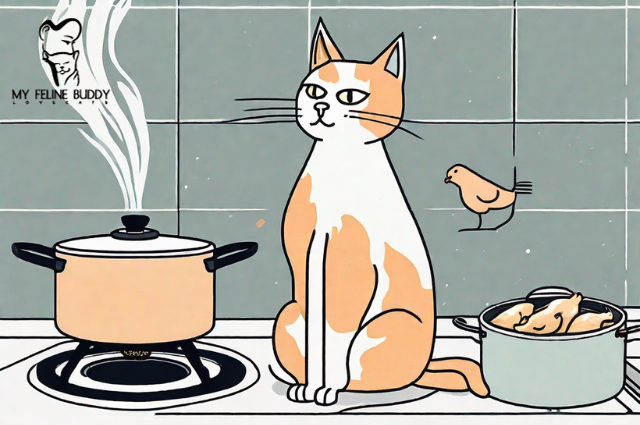Can Cats Have Black Pepper?
When it comes to your feline companion’s dietary curiosities, you might find yourself wondering, “Can cats have black pepper?” It’s a valid concern, especially if you enjoy sharing your meals with your four-legged friend.
Cats are known for their inquisitive nature, and black pepper often finds its way into various dishes, both homemade and store-bought. Understanding whether black pepper is safe for your
In this article, we’ll explore the relationship between cats and black pepper, delving into the potential risks, effects, and best practices to keep your feline friend safe. But first, let’s address the curiosity that sparked this question.
Cats and Black Pepper: An Unlikely Pair
You might wonder why cats are even interested in black pepper in the first place. The secret lies in their heightened senses, particularly their acute sense of smell. Cats’ noses are finely tuned to detect a wide range of scents, even those as subtle as black pepper. This curiosity is what leads them to investigate any new aroma that wafts through the air.
As for black pepper, it’s a staple in many kitchens worldwide. With its pungent aroma and slightly spicy flavor, it can be found in countless culinary creations. The scent of black pepper, to a
Despite this curiosity, it’s essential to understand that while a dash of black pepper on your dinner plate might not seem harmful, it can have varying effects on your
Black pepper’s active compound, piperine, can irritate a
Is Black Pepper Harmful to Cats?
Now, let’s address the big question: is black pepper harmful to cats? While black pepper is not toxic in the way some substances are, it can pose certain risks if ingested in large quantities.
Black pepper is known for its pungent and spicy flavor, which may not be appealing to most cats. However, in some cases, cats might accidentally ingest small amounts, especially if it’s sprinkled on human food they have access to.
While black pepper itself is not toxic, excessive consumption can lead to mild gastrointestinal upset. Symptoms may include diarrhea or vomiting. So, while a small taste of black pepper is unlikely to harm your
Spicy Foods and Cats: A Look at Black Pepper Effects
To delve further into the topic of cats and black pepper, let’s consider how cats react to this pungent spice. Cats have a unique digestive system and taste preferences that differ from humans. While we may find black pepper’s spiciness enjoyable, it’s not the same for our feline friends.
Cats have taste buds that are less receptive to flavors like spiciness. They tend to favor milder tastes. Therefore, the spicy nature of black pepper doesn’t typically make it a desirable treat for them. In fact, most cats will steer clear of anything too spicy.
However, if a
But what about potential allergic reactions to black pepper? Some cats may have sensitivities or allergies to certain substances, and black pepper is no exception. In rare cases, a
To ensure your
In our next section, we’ll explore the use of black pepper as a
Read more: How to cook chicken for cats
Can Cats Eat Black Pepper Without Getting Sick?
Now that we’ve discussed the intrigue that black pepper holds for cats and its potential effects, let’s address the pivotal question: Can cats eat black pepper without getting sick?
As responsible pet owners, it’s essential to prioritize your
Cats may experience mild discomfort, such as sneezing or gastrointestinal upset, as their bodies react to the pungent spice. However, this discomfort usually passes without the need for medical intervention.
Black pepper is non-toxic for cats. Mild reactions, if any, are more common than severe issues when black pepper is ingested.Â
It’s important to emphasize moderation when it comes to black pepper. A dash of pepper on a meal should not pose a significant risk to your feline friend. But, as with any food or spice, overindulgence can lead to digestive issues.
If your
You might also like: Can cats drink apple juice?
Black Pepper and Cats: A Balanced Approach
In conclusion, cats and black pepper can coexist safely with the right knowledge and precautions. While black pepper’s pungent scent might pique your feline friend’s curiosity, it’s not typically a spice they enjoy or seek out.
Most cats will avoid it, and any minor reactions they may have are usually short-lived and non-life-threatening.
As a responsible
Black pepper is useful in one way — if you’ve ever been interested in using turmeric to prevent or alleviate the symptoms of joint disease and other ailments in cats, black pepper is a must in supplements.
Frequently Asked Questions About Cats & Black Pepper
To address some of the most common questions about cats and black pepper, let’s turn to the “People Also Ask” section on Google for insights. These frequently asked questions offer valuable information for
1. Can black pepper make a cat sick?
Black pepper can make a
2. What happens if a cat eats black pepper?
When a
3. Is black pepper toxic to cats?
Black pepper is not technically considered toxic to cats. It’s generally safe for them to ingest in small amounts.
4. How much black pepper is safe for cats?
While there isn’t an exact safe dosage, small amounts of black pepper in your
5. Can black pepper cause allergies in cats?
Some cats may be sensitive to black pepper, potentially leading to allergic reactions. Monitor your
6. What are the signs of black pepper poisoning in cats?
There are typically no signs of black pepper poisoning in cats. Mild reactions may include sneezing and mild digestive upset.
Summary
In our quest to answer the question, “Can cats have black pepper?” we’ve explored the dynamics between these curious creatures and the pungent spice. While cats may show interest in black pepper due to their keen sense of smell, it’s not a substance they typically seek out for consumption. For the most part, they find its spiciness unappealing.
Our exploration has shown that black pepper is generally non-toxic to cats. However, it can lead to mild reactions such as sneezing or mild gastrointestinal upset if ingested in significant amounts. These reactions are usually short-lived and don’t pose severe health risks.
As responsible
